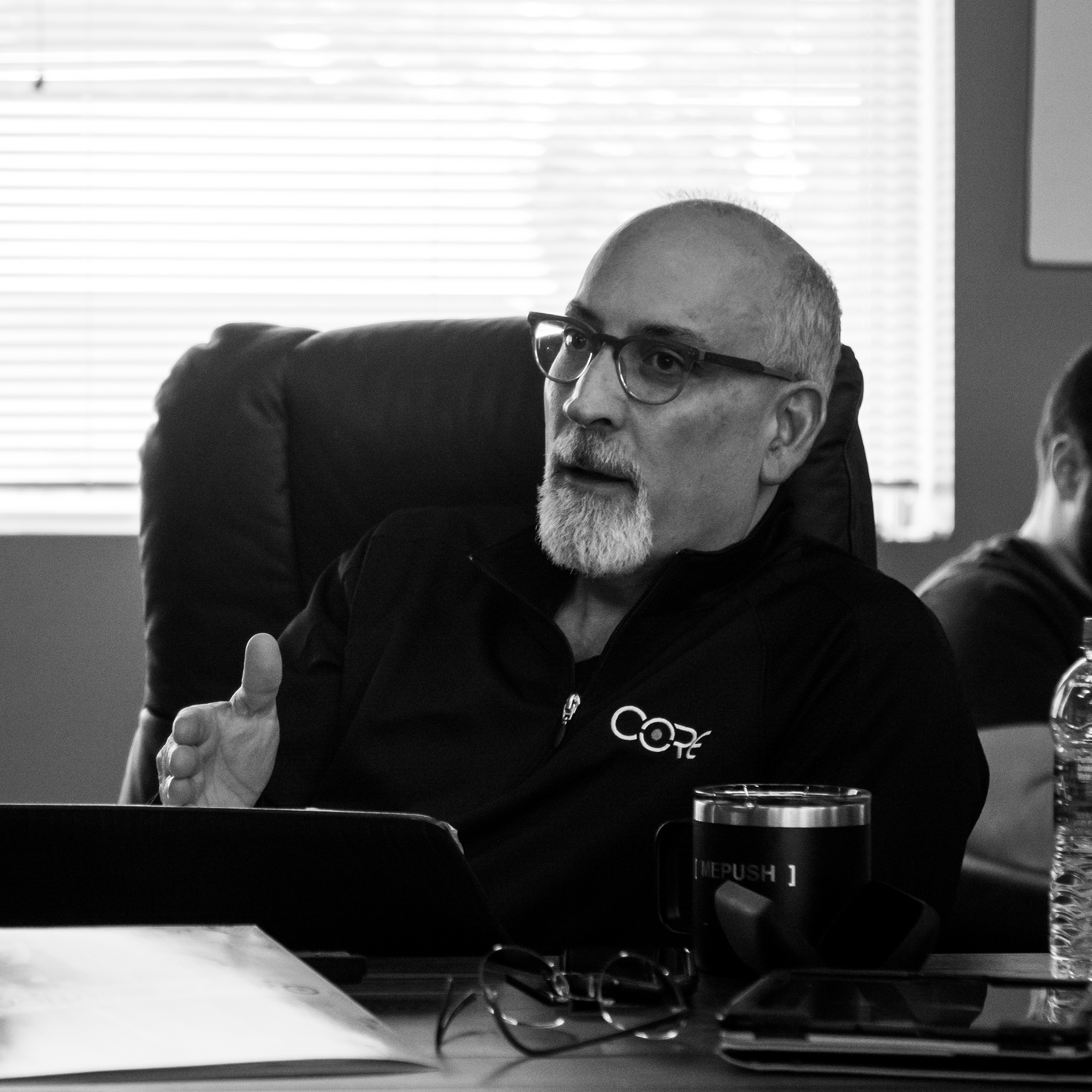ISO 9001 Consulting
for Manufacturers in Atlanta GA

Local Consulting for the Atlanta Market
ISO 9001 Quality Management System. 100% Success Rate.
Implementation with Core. 4 Steps. 4 Months. Done.
ISO 9001 Certification in Atlanta, GA
ISO 9001 certification is a globally recognized hallmark of excellence in quality management. Achieving this prestigious certification signifies that a business has met stringent quality management standards and is dedicated to fostering continuous improvement. In Atlanta, Georgia, numerous businesses have earned this distinction, showcasing their unwavering commitment to delivering quality, reliability, and innovation in their products and services.
What is ISO 9001 Certification?
ISO 9001 is a standard for quality management systems (QMS) developed by the International Organization for Standardization (ISO). ISO 9001 certification demonstrates an organization’s commitment to maintaining and improving the quality of its products or services. The standard provides a framework for establishing, implementing, and maintaining a quality management system. Certification is typically carried out by third-party certification bodies that are accredited to perform ISO 9001 audits.
Once an organization successfully demonstrates compliance with ISO 9001 requirements, it receives certification, which is usually valid for a certain period, after which surveillance audits are conducted to ensure ongoing compliance. ISO 9001 certification is widely recognized globally and can enhance an organization’s credibility, improve customer confidence, and facilitate access to new markets. Many industries and sectors, both in manufacturing and services, use ISO 9001 as a benchmark for quality management.
Get a Free Quote
The History of Manufacturing in Atlanta, Georgia: From Railroads to Innovation
Atlanta, Georgia, has long been a hub of innovation and industry. Its history in manufacturing reflects a story of resilience, adaptation, and growth, shaped by its strategic location and the industrious spirit of its people. From the railroad boom of the 19th century to its modern role in advanced manufacturing, Atlanta’s journey is a testament to its importance in shaping regional and national economies.
Early Beginnings: Railroads and Industry
Atlanta’s rise as a manufacturing center began in the mid-19th century when it emerged as a critical railroad hub in the southeastern United States. Originally named Terminus for its location at the end of the Western and Atlantic Railroad, the city’s strategic position connected the South to key markets and resources.
The railroads spurred the growth of manufacturing industries in Atlanta, particularly in textiles, agriculture, and lumber. Factories sprang up to process cotton, produce textiles, and refine timber, taking advantage of the region’s abundant natural resources. By the time the Civil War began, Atlanta had become a bustling center of industry, earning its reputation as the “Gate City of the South.”
What is the Cost of ISO 9001 Certification?
The cost of ISO 9001 certification with The Core Solution, Inc. varies depending on the size and complexity of the organization. However, we offer a transparent pricing structure that is based on the number of employees in the organization. It costs between $5,700 and $15,000 to prepare and between $3,000 and $5,000 to certify, depending on the company size and how much prep time you choose to take.
In addition to the cost of certification, there are other costs associated with achieving ISO 9001 certification. These may include the cost of training employees in the requirements of the standard and the cost of conducting internal audits to ensure compliance with the standard. However, the benefits of ISO 9001 certification often outweigh the costs. ISO 9001 certification can help organizations improve their operations, reduce costs, increase customer satisfaction, and enhance their reputation.
Consulting Programs Annually
Years Helping Customers
+8,000 Customers Trust Core
Core Business Solutions Consulting in Atlanta
Core Business Solutions is a leading provider of ISO 9001 consulting services with local consultants in Atlanta. We work with companies of all sizes and industries in Atlanta to help them achieve ISO 9001 Certification and improve their business processes. Core Business Solutions offers a comprehensive suite of services, including gap analysis, documentation development, training, and internal auditing.
What it’s like Working with Core Business Solutions
Chris R. an executive at Semper Valens Solutions, worked closely with one of our lead consultants, Pat Gagner, to acquire the ISO 20000-1 and ISO 27001 certifications. Chris acknowledged and commended Pat’s “invaluable contributions.” Chris further commented about Pat’s leadership and expertise saying that “Pat demonstrated an exceptional ability to break down complex ISO requirements into manageable and actionable steps, which was crucial for our understanding and implementation.”
Achieving ISO 20000-1 and ISO 27001 certifications can be a difficult task. Still, with the help of a knowledgeable and experienced consultant like Pat and the resources provided by Core Business Solutions, the process can be much easier. ISO Certification not only demonstrates a commitment to quality and customer satisfaction, but it can also improve business processes and increase efficiency, leading to greater success and profitability.

So, How do You get ISO 9001 Certification? Here are the Steps:
Step 1: Develop a Quality Management System
The first step in getting ISO 9001 Certification is to develop a Quality Management System that meets the requirements of the standard. This involves identifying the processes and procedures that are necessary to manage your organization’s operations and improve quality control. You’ll need to document these processes and procedures and ensure that they’re tailored to your organization’s specific needs.
Step 2: Implement the Quality Management System
Once you’ve developed your QMS, it’s time to implement it throughout your organization. This involves training employees in the new processes and procedures and making sure everyone understands their role in the QMS. You’ll also need to integrate the QMS into your overall business processes to ensure that it’s functioning effectively.
Step 3: Conduct an Internal Audit
Before seeking certification, you’ll need to conduct an internal audit to make sure that your QMS is functioning effectively. This involves reviewing your processes and procedures to identify any areas that need improvement and making changes as necessary.
Step 4: Select a Certification Body
Once you’re confident that your QMS is functioning effectively, it’s time to select a certification body to conduct an external audit. This involves choosing an accredited certification body that will conduct a thorough review of your QMS to ensure that it meets the requirements of the ISO 9001 standard.
Reconstruction and the Rise of Industry
After the Civil War, much of Atlanta’s infrastructure was destroyed, but the city quickly rebuilt and industrialized. The Reconstruction era saw a renewed focus on manufacturing, with industries such as ironworks, brickmaking, and furniture production driving growth.
Atlanta also became a center for cotton ginning and processing, reflecting the South’s reliance on agriculture. The city’s factories produced goods that were in high demand as the region worked to rebuild its economy and infrastructure. This period of recovery and industrial expansion laid the groundwork for Atlanta’s future as a manufacturing powerhouse.
The Early 20th Century: Textiles and Transportation
By the early 20th century, Atlanta had firmly established itself as a leader in textile manufacturing. Cotton mills and textile factories dominated the industrial landscape, producing fabrics and garments that were distributed nationwide. The industry provided thousands of jobs and shaped the city’s economy for decades.
At the same time, Atlanta’s strategic location made it a hub for transportation-related industries. Companies producing machinery, railcars, and automotive components began to emerge, capitalizing on the city’s growing connectivity and infrastructure.
World War II and Industrial Expansion
World War II brought a surge of industrial activity to Atlanta, as the city played a vital role in the nation’s war effort. Factories shifted to produce military goods, such as munitions, aircraft components, and vehicles. Bell Aircraft Corporation (now Lockheed Martin) established a massive facility in nearby Marietta, producing B-29 bombers that were critical to the Allied victory.
This period of wartime production not only boosted the local economy but also solidified Atlanta’s position as an industrial leader in the Southeast. Many of the facilities and technologies developed during the war laid the foundation for post-war industrial growth.
The Post-War Boom: Diversification and Growth
After World War II, Atlanta’s manufacturing sector diversified. In addition to textiles, the city became a hub for food processing, paper production, and electronics manufacturing. Coca-Cola, headquartered in Atlanta, grew into a global brand during this time, driving demand for bottling and packaging facilities.
The city also began to attract technology-driven industries, such as aerospace and telecommunications. As Atlanta’s population expanded, so did its industrial base, with new factories and facilities sprouting up to meet growing demand.
“Our consultant, Bruce Newman, made the process of planning and organizing the company for ISO 9001 easy and efficient. The Core platform is well organized with a fantastic help/training section. I would definitely recommend Bruce and Core for anyone interested in achieving ISO 9001 certification.”
Parker P. GreenBoom – GA


Improve your Chances in a Competitive Market
Overall, ISO 9001 certification can be a valuable investment for businesses in Atlanta. It can help businesses to improve their processes, enhance customer satisfaction, and gain a competitive advantage. In addition, it can help businesses comply with regulatory requirements and provide peace of mind for customers and stakeholders. As a result, businesses that obtain ISO 9001 certification are well-positioned for success in the dynamic and competitive Atlanta market.
ISO 9001 Certification Atlanta, GA
Modern Manufacturing: A Hub for Innovation
Today, Atlanta is a leader in advanced manufacturing, with industries like aerospace, automotive, and life sciences driving growth. Companies such as Delta Air Lines, UPS, and Novelis have headquarters or major operations in the region, benefiting from Atlanta’s strategic location and world-class infrastructure.
The city is also at the forefront of sustainable manufacturing, with a focus on energy efficiency, recycling, and renewable materials. Partnerships between businesses, universities, and research institutions are fostering innovation and ensuring Atlanta remains competitive in the global economy.

